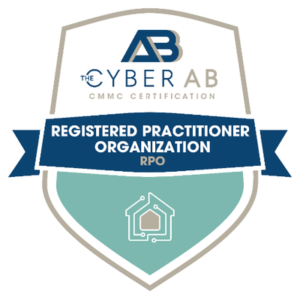In recent years, quantum computers have been extensively researched. These machines exploit quantum mechanical phenomena to solve mathematical problems that are difficult for conventional computers to solve. The construction of large quantum computers will make breaking many current public-key cryptosystems possible. As a result, the integrity and confidentiality of digital communications on the internet and elsewhere could be seriously compromised.
However, the quantum computing news for cybersecurity isn’t all bad. Quantum computing technologies, such as quantum key distribution (QKD), could enhance cybersecurity in the future. QKD uses quantum principles to generate cryptographic keys, enabling secure communication that can detect eavesdroppers. QKD also offers a potentially secure way to transmit cryptographic keys.
Solutions for Quantum Computing Risks to Cybersecurity
Quantum computing is evolving quickly, so organizations must plan to ensure that their systems are resilient to quantum attacks. Some solutions to the quantum computing risks to cybersecurity include:
- Post-Quantum Cryptography: Invest in researching and implementing post-quantum cryptographic algorithms. The National Institute of Standards and Technology (NIST) is standardizing post-quantum cryptographic algorithms, and companies should stay informed about developments in this area.
- Security Audits and Updates: Conduct regular security audits to identify and address system vulnerabilities. Keep software, firmware and hardware up to date with the latest security patches to mitigate vulnerabilities.
- Enhanced Encryption Practices: Strengthen existing cryptographic practices. Use larger key sizes and more robust algorithms to increase the complexity and time required for potential attackers, even if they possess quantum capabilities.
- Risk Assessment and Planning: Conduct a risk assessment to identify areas of vulnerability related to quantum computing. Develop a strategic plan to address potential risks and incorporate quantum-safe solutions when feasible.
- Diversification of Cryptographic Techniques: Avoid reliance on a single cryptographic method. Diversify cryptographic techniques to reduce the impact of vulnerabilities in any one specific approach and make it more challenging for attackers to compromise systems.
- Education and Awareness: Educate employees and stakeholders about the potential impact of quantum computing on cybersecurity. Create awareness about the need for quantum-resistant measures and ensure your organization is prepared for future cryptographic changes.
- Collaboration and Information Sharing: Collaborate with industry peers, researchers and government agencies to stay informed about the latest quantum computing and cybersecurity developments. Share information and best practices to strengthen the overall security posture collectively.
- Quantum-Safe Policies in Procurement: When acquiring new technologies or services, make sure your vendors are implementing quantum-safe cryptographic measures. This includes demanding transparency about their efforts to address quantum threats and providing quantum-resistant solutions.
By taking a multi-faceted approach that combines both short-term strategies and long-term planning, companies can better position themselves to mitigate the cybersecurity risks associated with the advent of quantum computing.
MBL Technologies provides comprehensive cybersecurity services for long-term, sustainable solutions that address every facet of the evolving threat landscape, including planning for quantum computing risks to cybersecurity. We help you boost your cybersecurity posture and implement cybersecurity best practices at your organization. Contact us today to get started.




